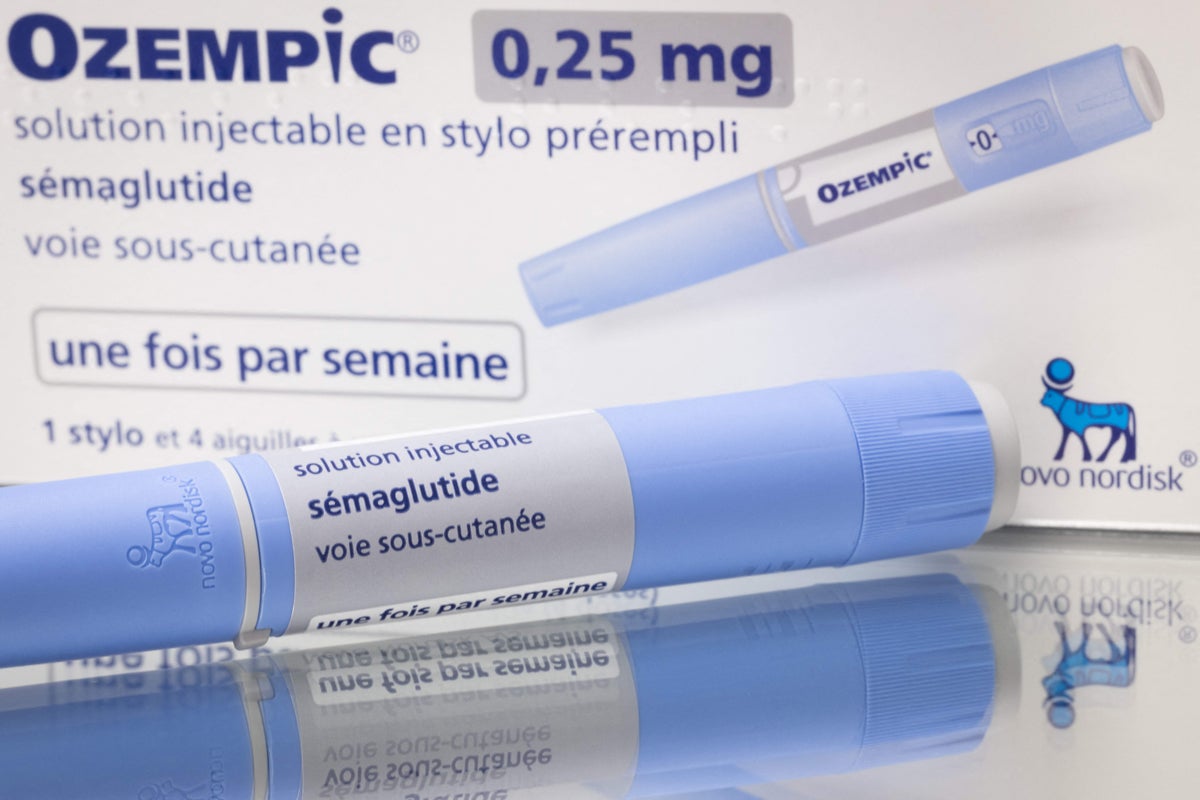Health
Internet Buzzes Over Microdosing GLP-1 Drugs, Scientists Warn Against It

The trend of “microdosing” GLP-1 drugs, such as Ozempic and Mounjaro, has gained significant traction on social media as individuals seek potential longevity benefits. However, scientists caution that there is no credible evidence to support these claims. Originally developed to treat type 2 diabetes, GLP-1 medications have recently become popular among millions of Americans for weight management.
According to a report by The Washington Post, the microdosing trend involves taking smaller doses of these drugs with the hope of enhancing longevity. More than a dozen telehealth companies and medical practices are promoting this approach. Despite the growing interest, experts emphasize that there is virtually no published scientific data confirming the safety or effectiveness of microdosing medications like tirzepatide, the active ingredient in Zepbound, or semaglutide, the active ingredient in Ozempic.
Dr. Eric Topol, a cardiologist and director of the Scripps Research Translational Institute, described the microdosing phenomenon as a “craze” lacking substantial backing. He cautioned, “It’s too early for people to do this,” while underscoring the need for further research into how GLP-1 drugs might address age-related diseases.
While researchers are still investigating the potential of GLP-1 medications to reduce inflammation in the body, it remains unclear whether microdoses can achieve similar effects. Daniel Drucker, a professor at the University of Toronto, stated that there is no consensus regarding what constitutes a microdose.
The appeal of microdosing may also stem from the lower cost associated with using smaller amounts of medication, particularly for patients who are paying out of pocket. Nevertheless, coverage for GLP-1 drugs is expanding, with Medicare and Medicaid potentially beginning to cover these medications for weight management in the near future.
Pharmaceutical companies are responding to the microdosing trend with caution. A spokesperson for Eli Lilly, the manufacturer of Zepbound and Mounjaro, indicated that the company does not possess any data regarding the benefits or risks associated with microdosing either drug. Meanwhile, Novo Nordisk, which produces Ozempic, expressed concern over the proliferation of non-FDA-approved knock-off versions of semaglutide and the misinformation circulating about GLP-1 drugs.
The U.S. Food and Drug Administration (FDA) has issued warnings regarding the risks associated with using unapproved versions of GLP-1 medications, highlighting the potential dangers to patients.
As the conversation around microdosing GLP-1 drugs continues to unfold, it is essential for consumers to consider the lack of scientific evidence and the potential risks involved. The dialogue is expected to evolve as further research emerges, and health professionals advocate for informed decisions regarding these medications.
-

 Entertainment2 months ago
Entertainment2 months agoIconic 90s TV Show House Hits Market for £1.1 Million
-

 Lifestyle4 months ago
Lifestyle4 months agoMilk Bank Urges Mothers to Donate for Premature Babies’ Health
-

 Sports3 months ago
Sports3 months agoAlessia Russo Signs Long-Term Deal with Arsenal Ahead of WSL Season
-

 Lifestyle4 months ago
Lifestyle4 months agoShoppers Flock to Discounted Neck Pillow on Amazon for Travel Comfort
-

 Politics4 months ago
Politics4 months agoMuseums Body Critiques EHRC Proposals on Gender Facilities
-

 Business4 months ago
Business4 months agoTrump Visits Europe: Business, Politics, or Leisure?
-

 Lifestyle4 months ago
Lifestyle4 months agoJapanese Teen Sorato Shimizu Breaks U18 100m Record in 10 Seconds
-

 Politics4 months ago
Politics4 months agoCouple Shares Inspiring Love Story Defying Height Stereotypes
-

 World4 months ago
World4 months agoAnglian Water Raises Concerns Over Proposed AI Data Centre
-

 Sports4 months ago
Sports4 months agoBournemouth Dominates Everton with 3-0 Victory in Premier League Summer Series
-

 World4 months ago
World4 months agoWreckage of Missing Russian Passenger Plane Discovered in Flames
-

 Lifestyle4 months ago
Lifestyle4 months agoShoppers Rave About Roman’s £42 Midi Dress, Calling It ‘Elegant’









